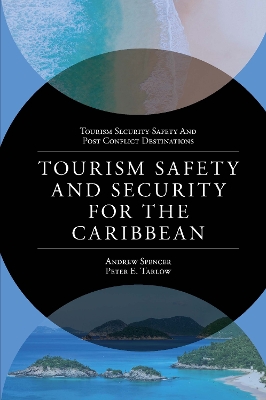Tourism Security-Safety and Post Conflict Destinations
2 total works
Tourism Safety and Security for the Caribbean
by Andrew Spencer and Peter E. Tarlow
The authors establish a contextual framework through a history of tourism security and discussion of the theories of in this area from Marxism to Capitalism and Functionalism to Symbolic interaction. Chapters examine a wide range of other issues, including the renaissance of tourism security, Jamaica's national tourism security audit, and the role of the resilience center in worldwide tourism, as well the development of tourism police and the rise of cyber security for tourism.
The study presents an illuminating new perspective for Tourism and Security Studies scholars interested in the Caribbean context and beyond.
Human Trafficking and the Tourism Industry
by Peter E. Tarlow and Andrew Spencer
Although human trafficking has long been a tragic part of history, in recent years it has become an ever-growing problem globally, and in many cases facilitated a modern form of slavery. In the twenty-first century, human trafficking is not only intertwined with international drug cartels but also, although rarely mentioned, with the tourism industry.
Human Trafficking and the Tourism Industry uncovers the tragedy of human trafficking and the history of this phenomenon, confronting the dark side of the tourism industry. It fills the academic gap regarding the rarely mentioned interrelationship between the two, shining a light on how many people are trapped in a new form of indentured servitude. Peter Tarlow and Andrew Spencer analyze how outside forces such as the recent Covid pandemic impacted human trafficking and how well-established tourism practices such as tipping add to the dehumanization process. The book is aimed not only at academics and practitioners of tourism but also is meant to be a guide for government policy makers, law enforcement agencies and a wake-up call for members of the international tourism industry.
The Tourism Security-Safety and Post Conflict Destinations series provides an insightful guide for policy makers, specialists and social scientists interested in the future of tourism in a society where uncertainness, anxiety and fear prevail.

